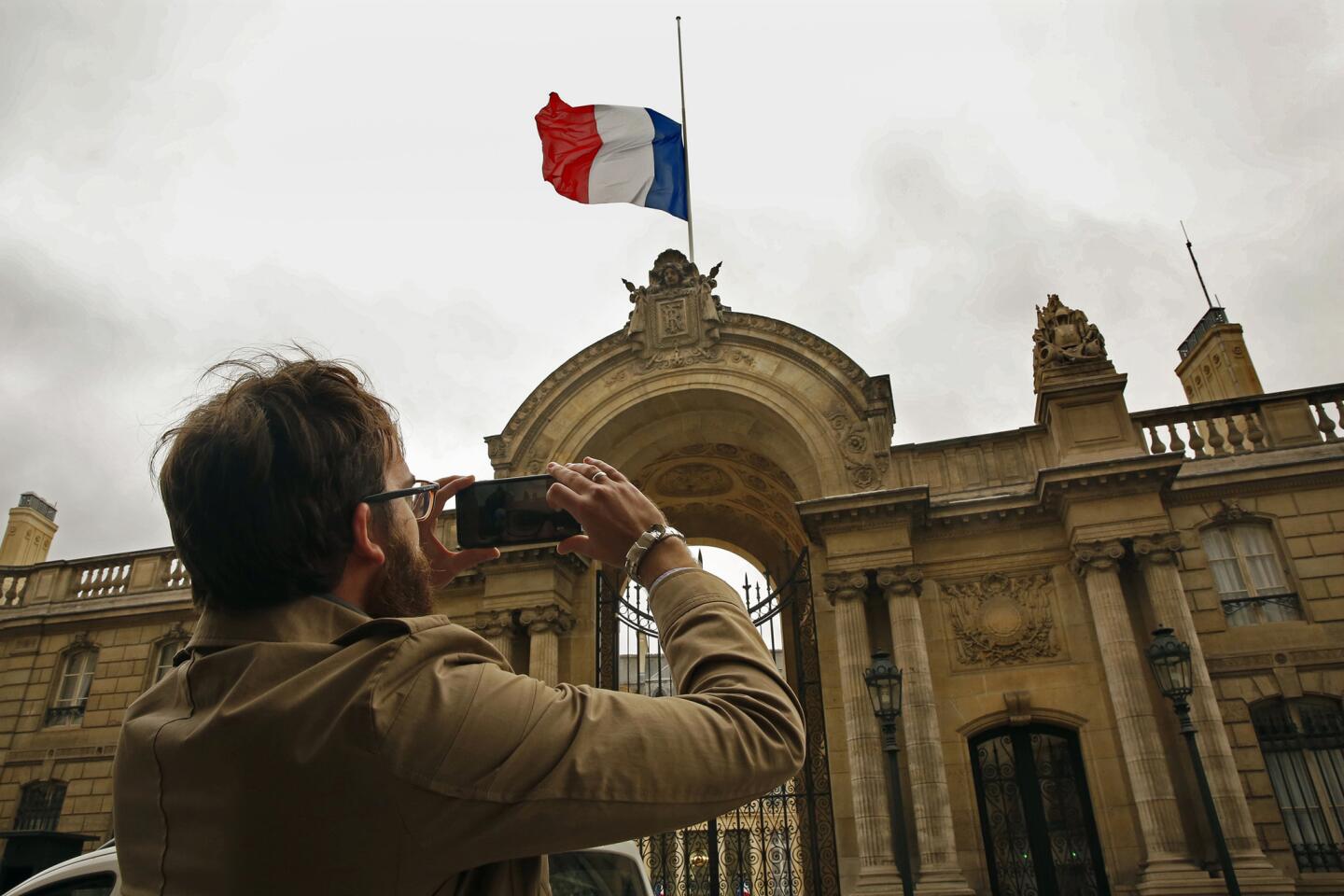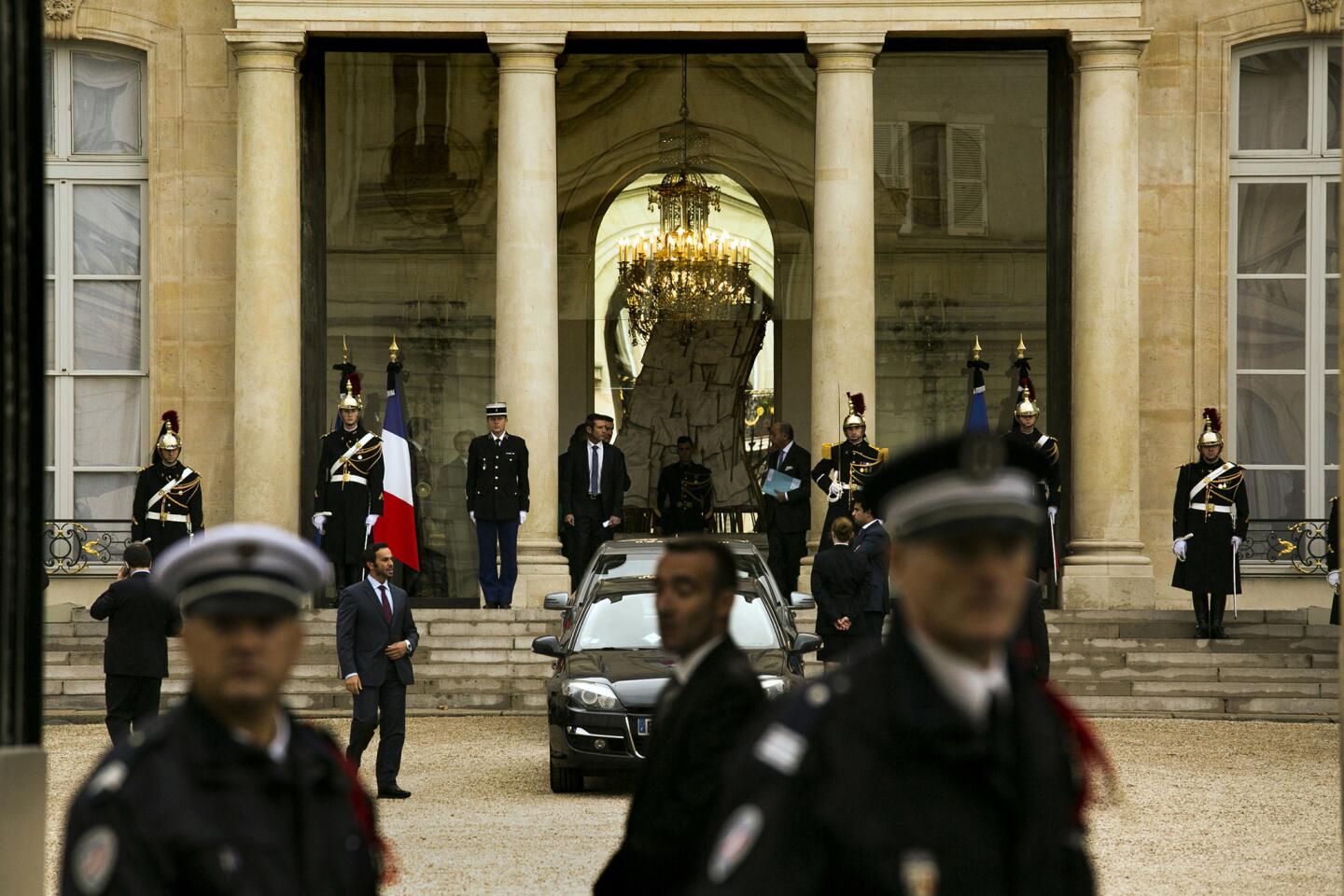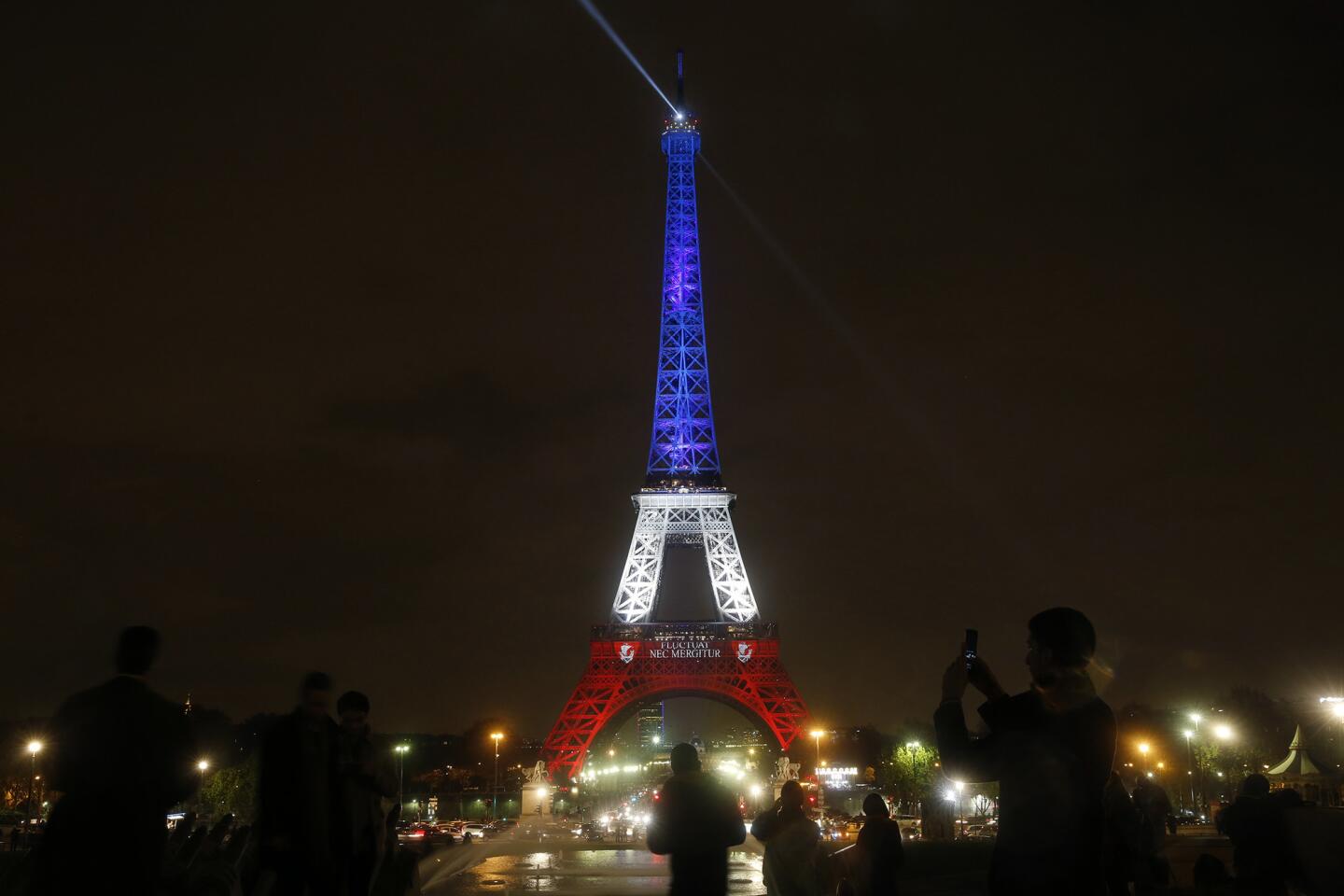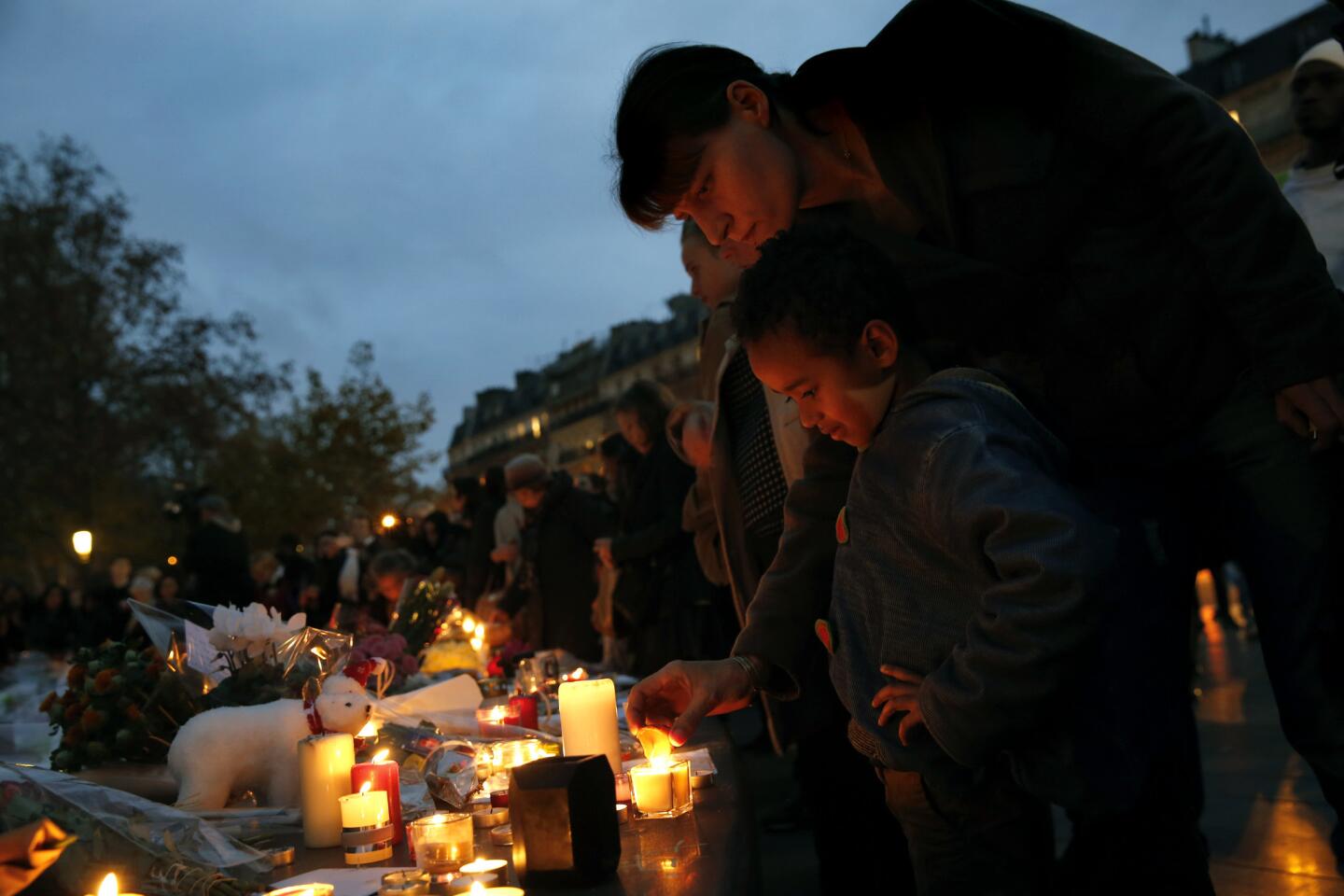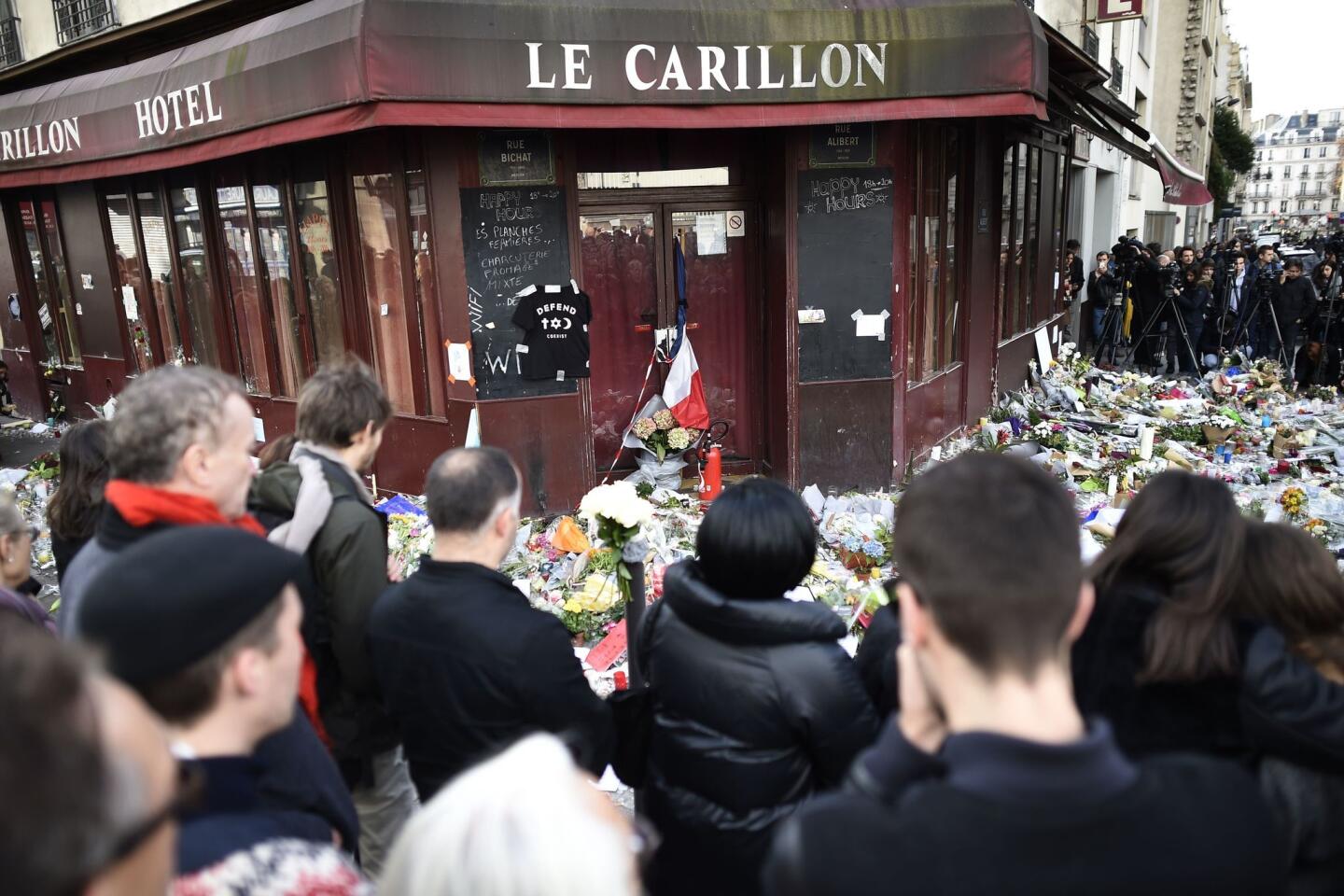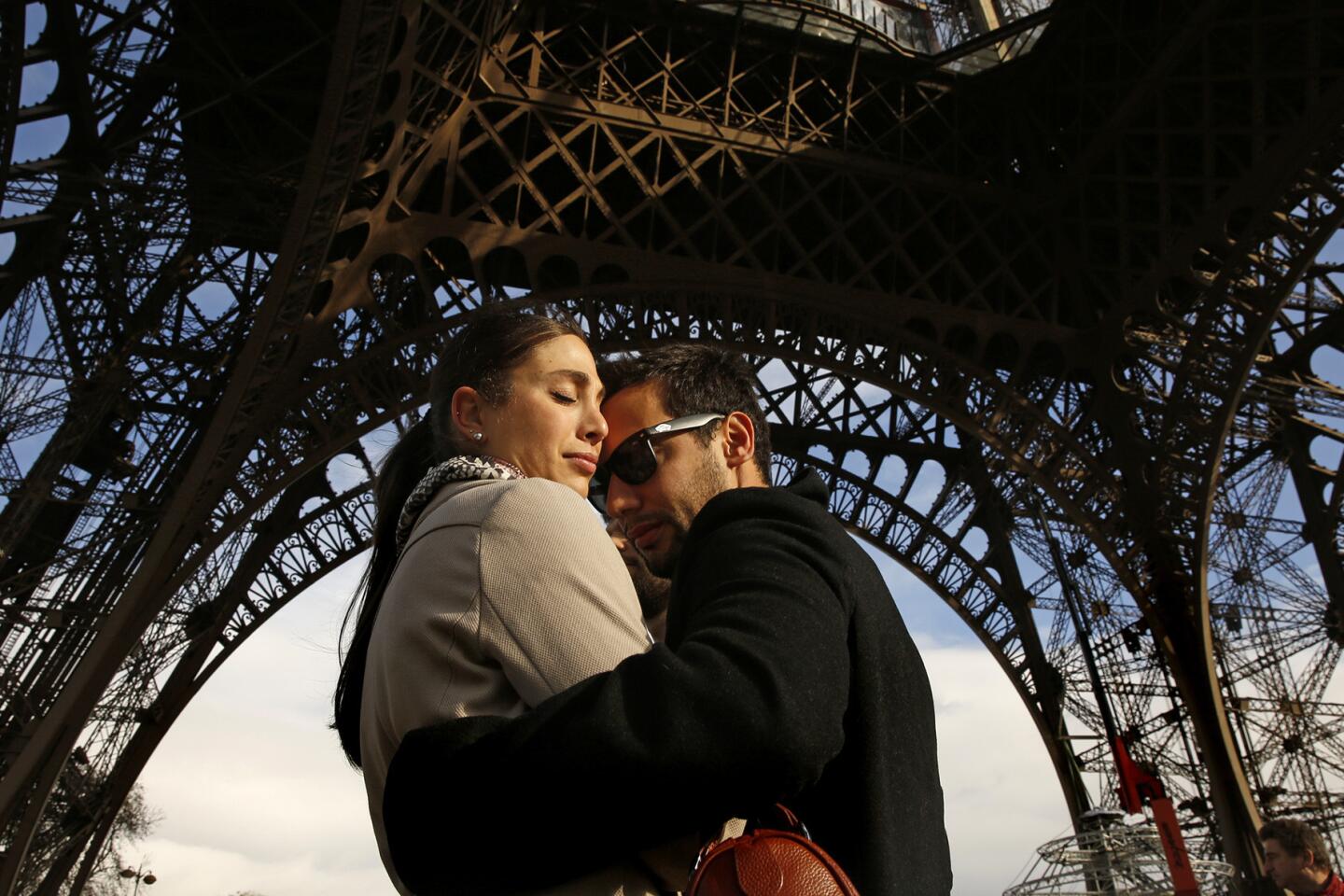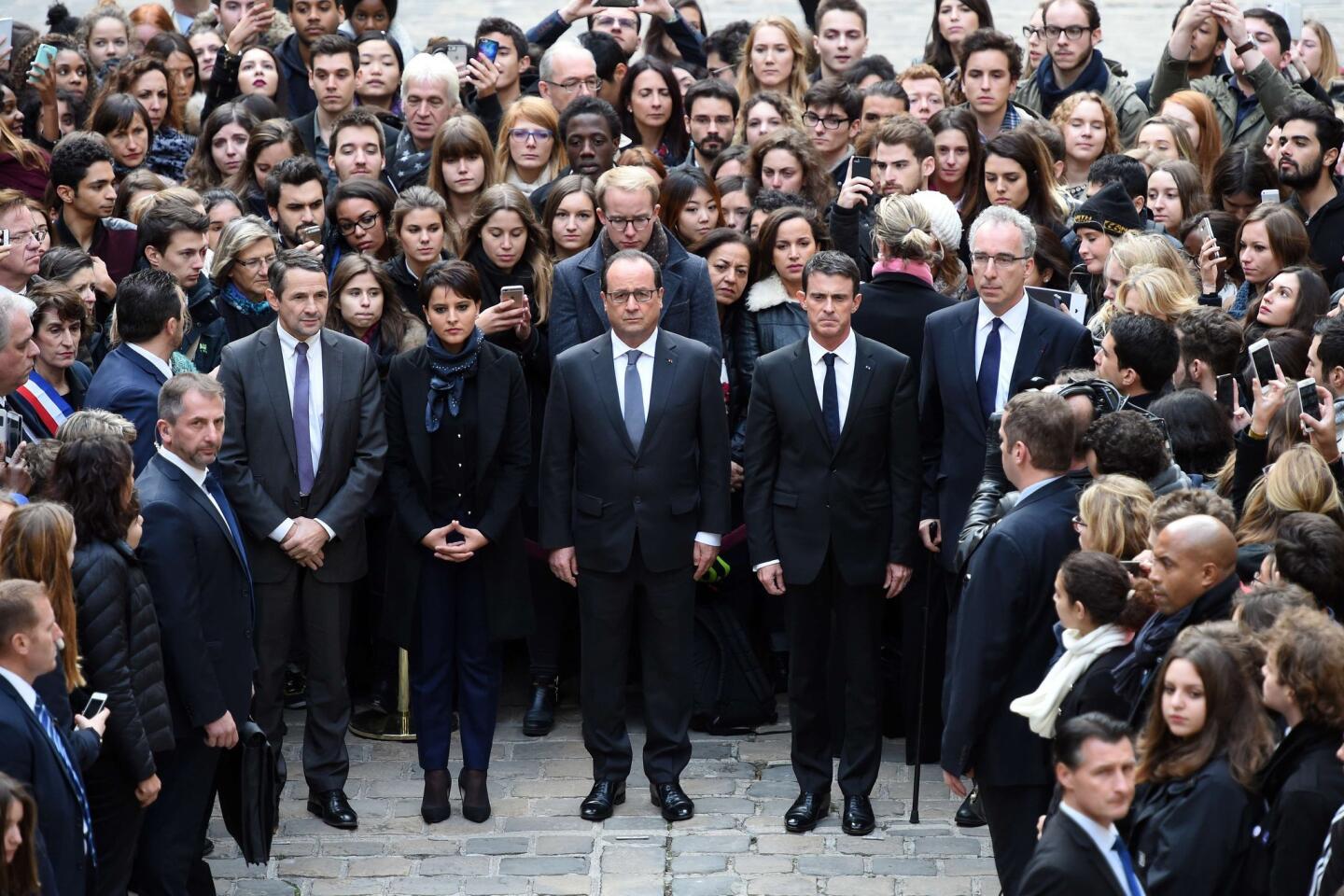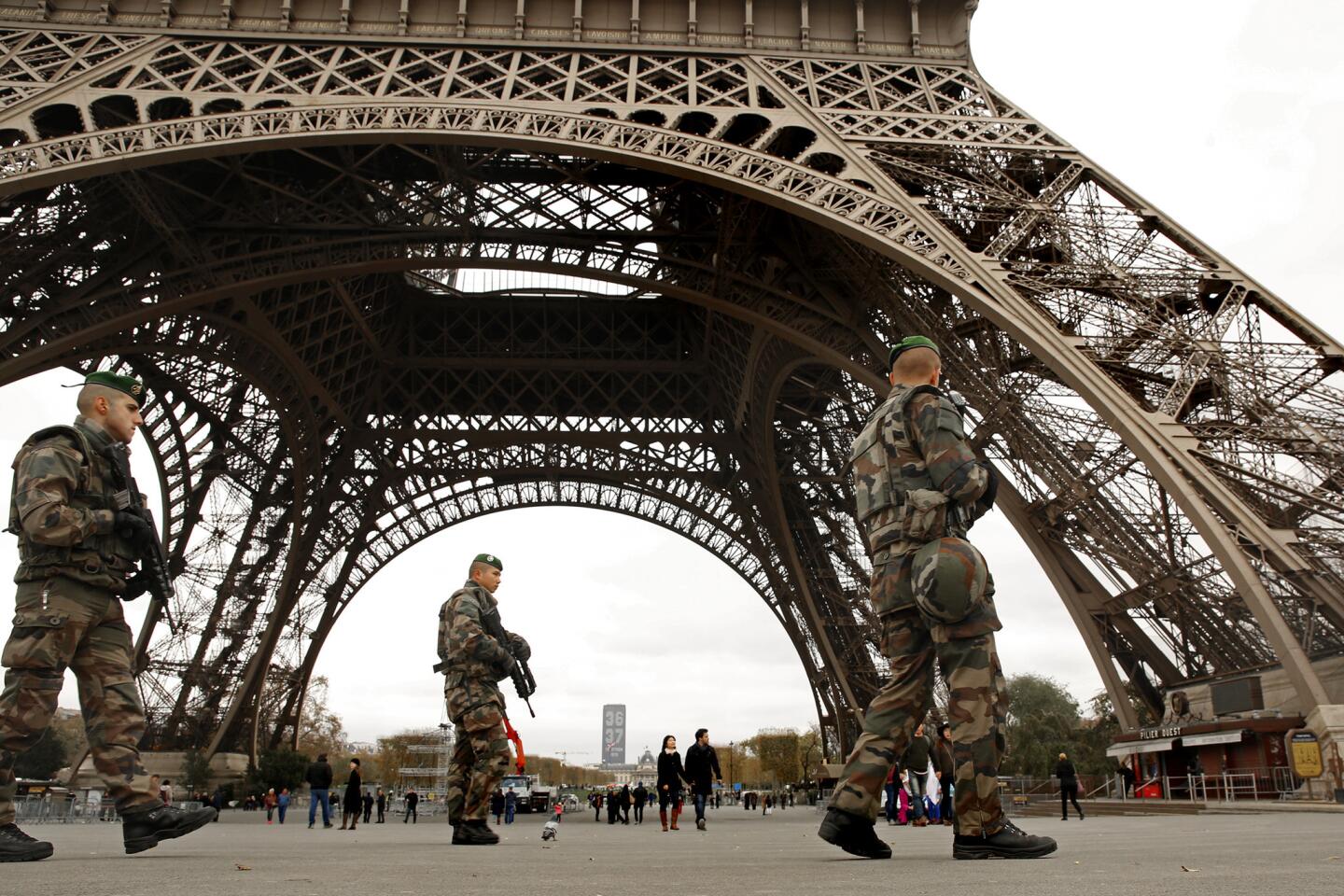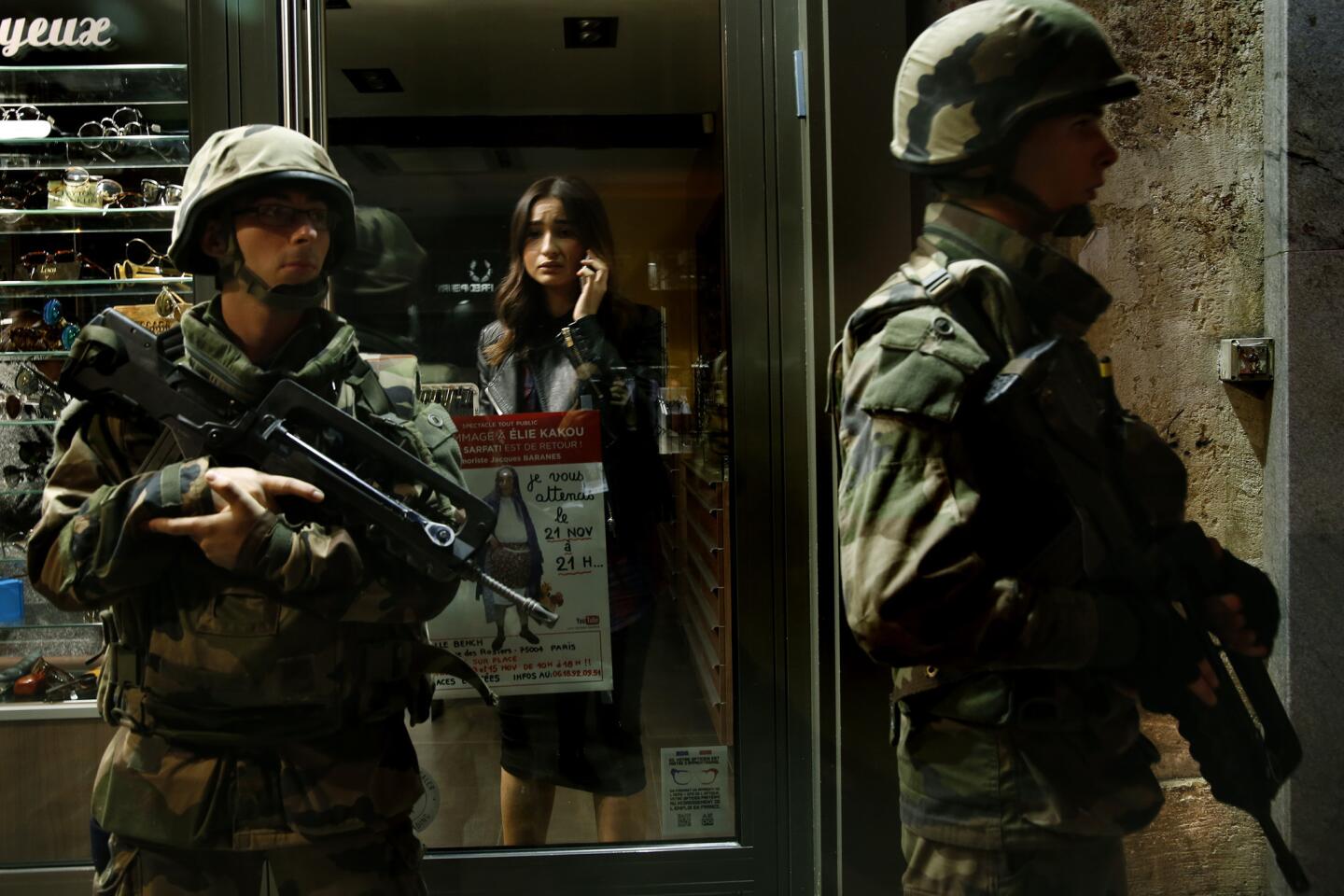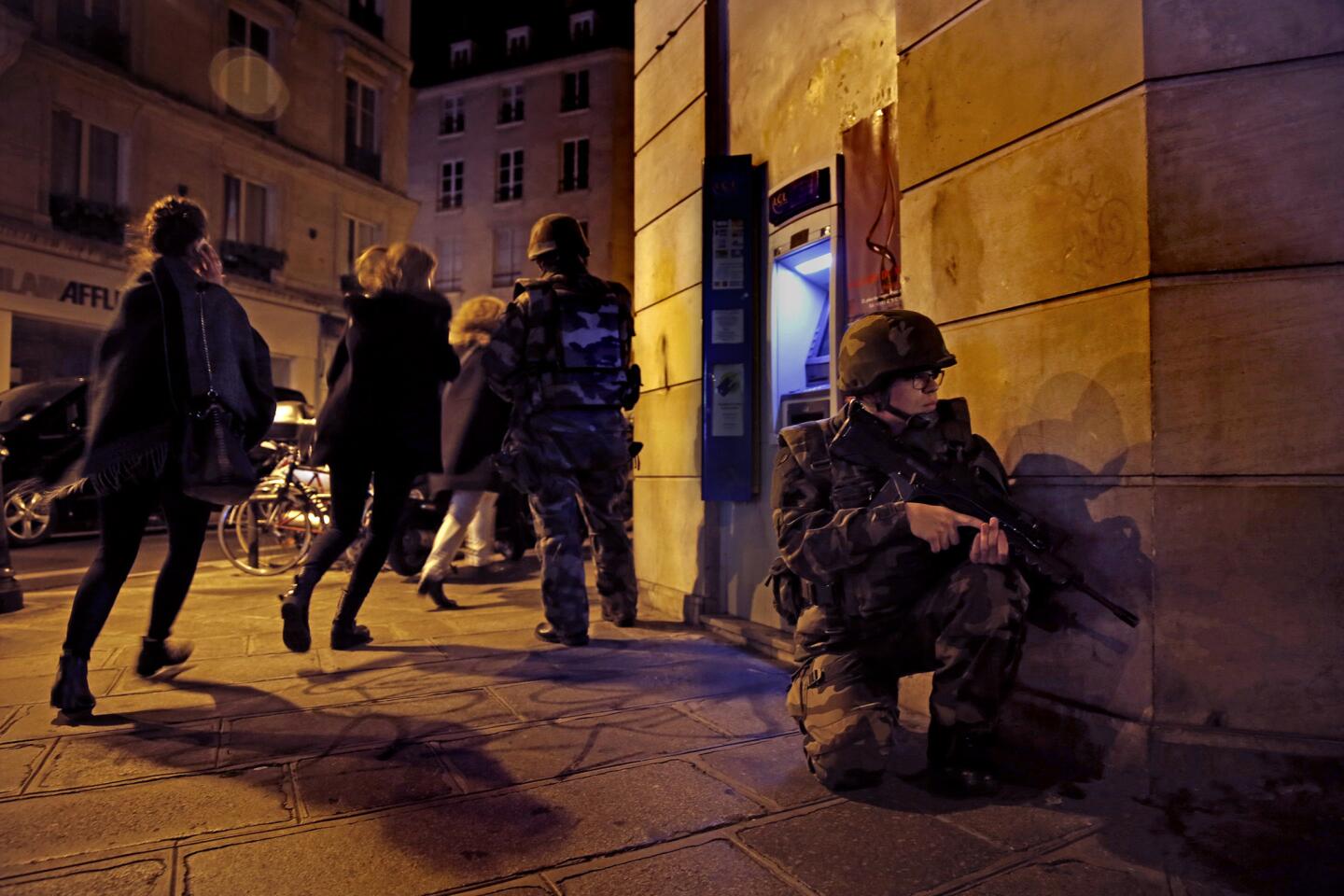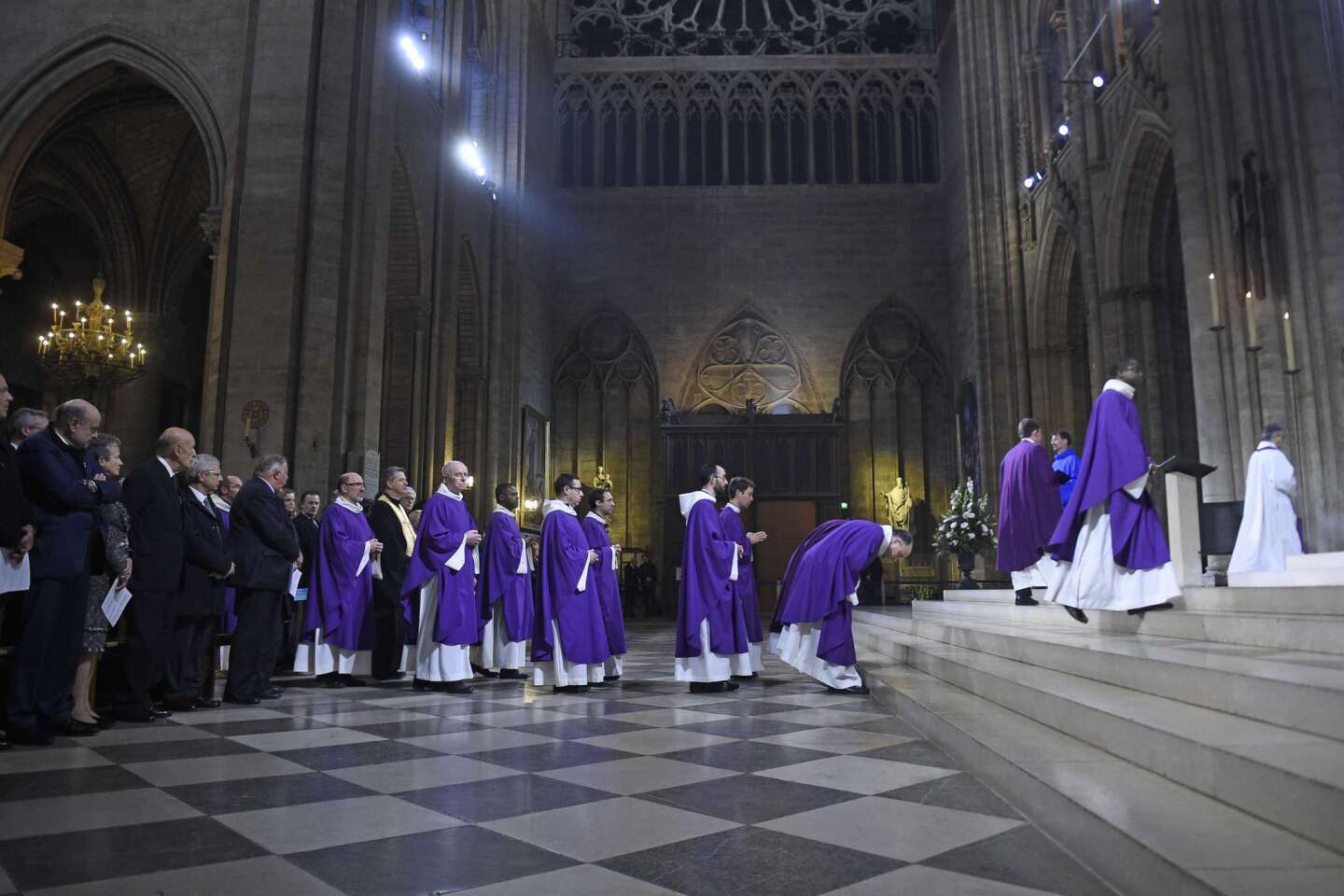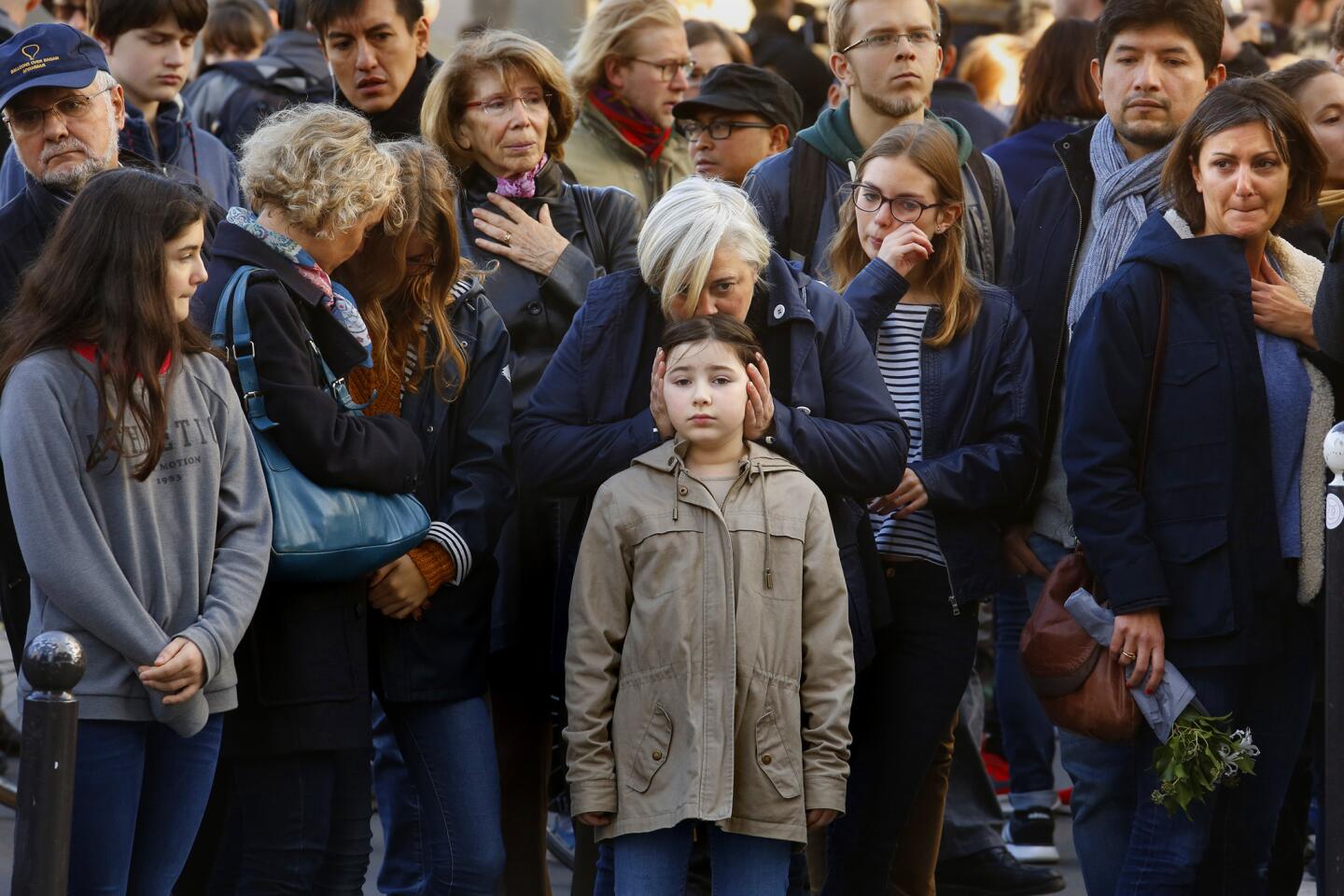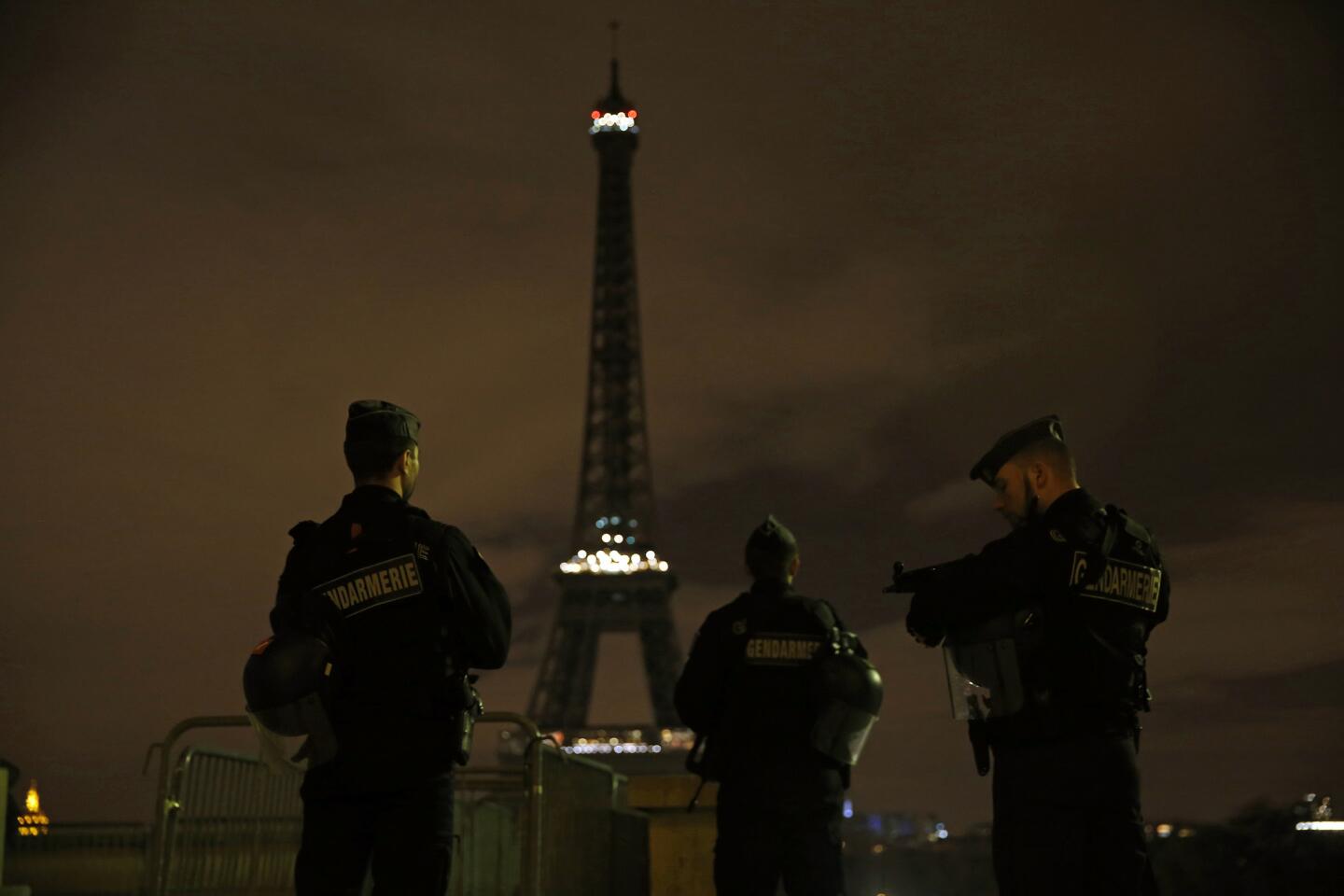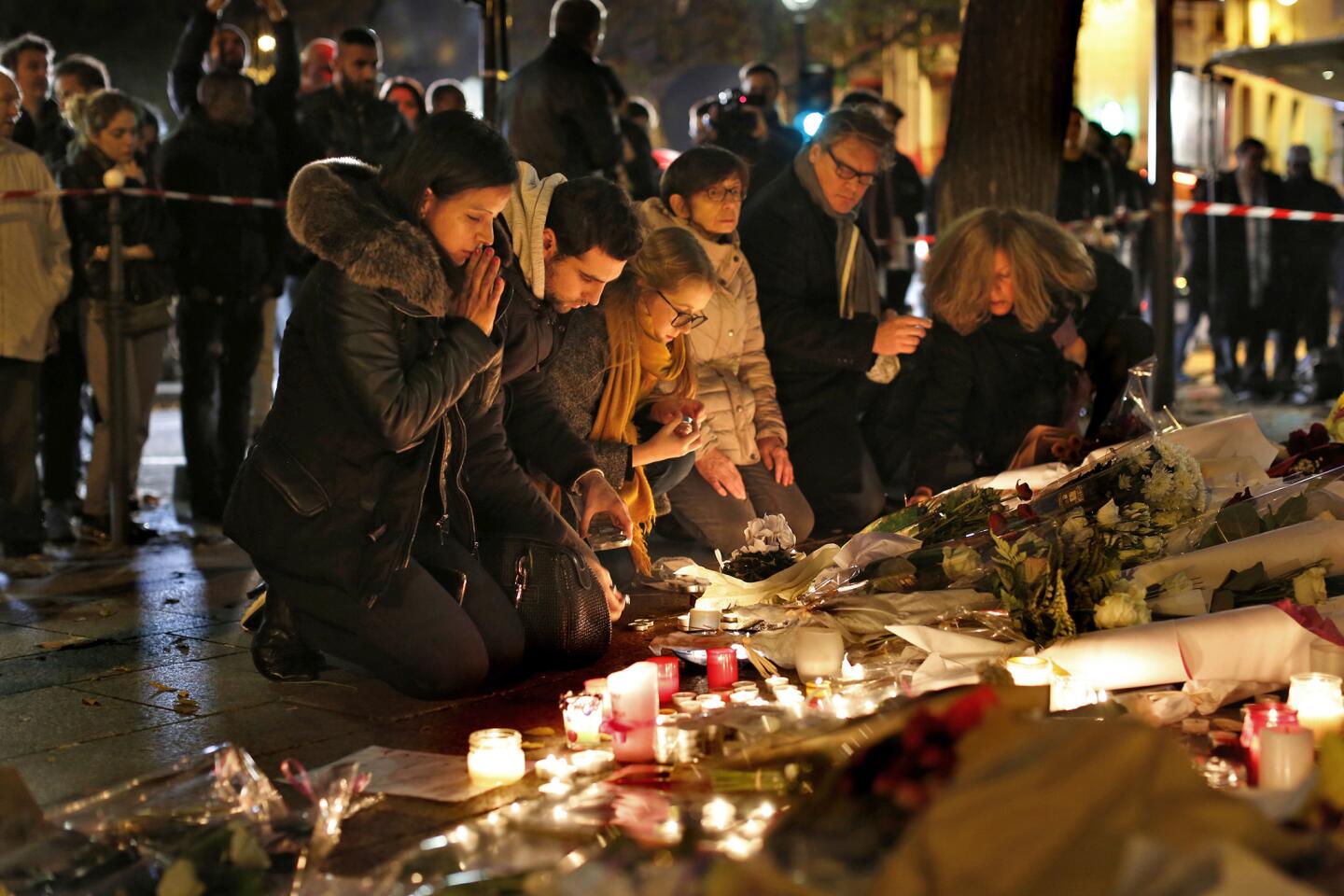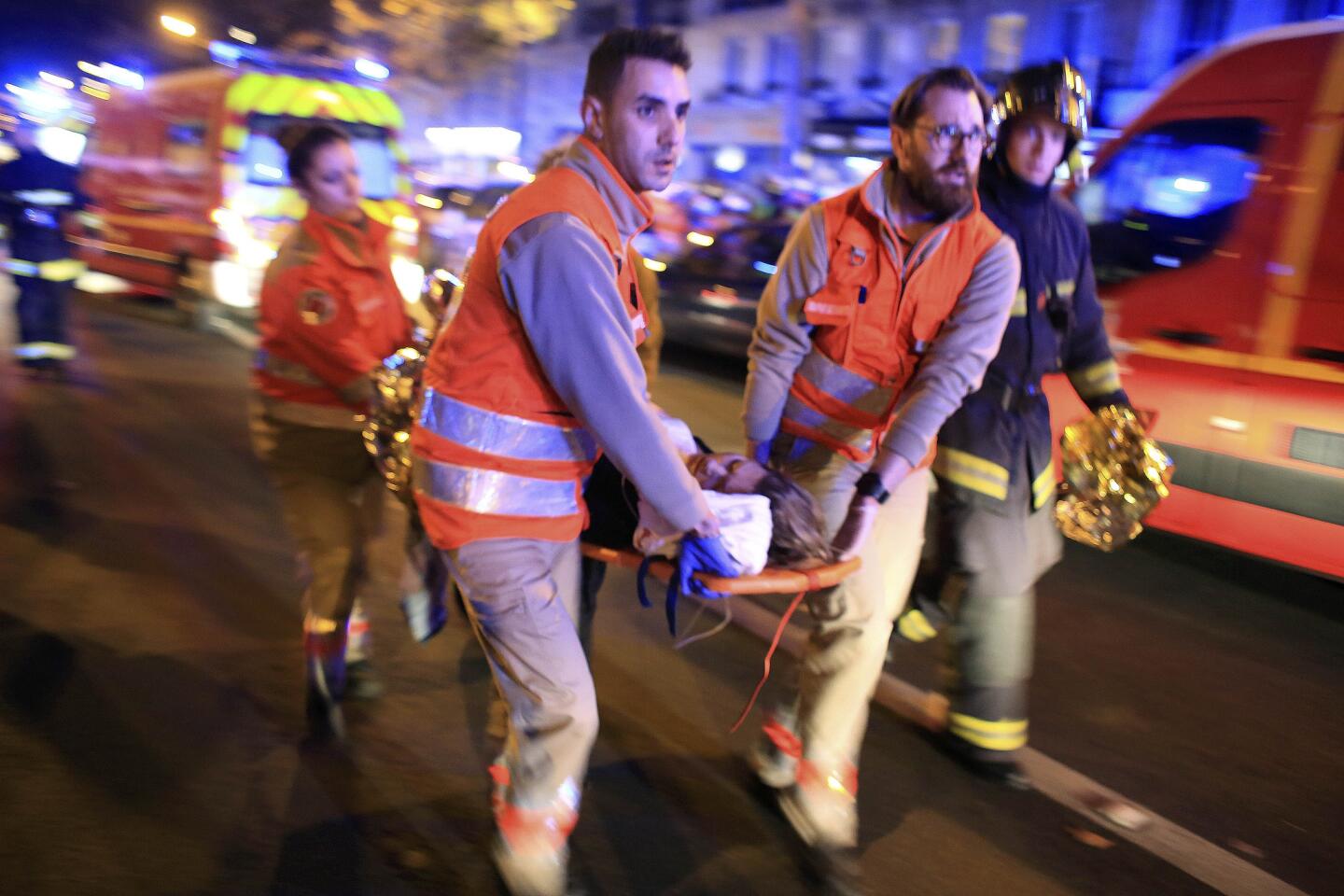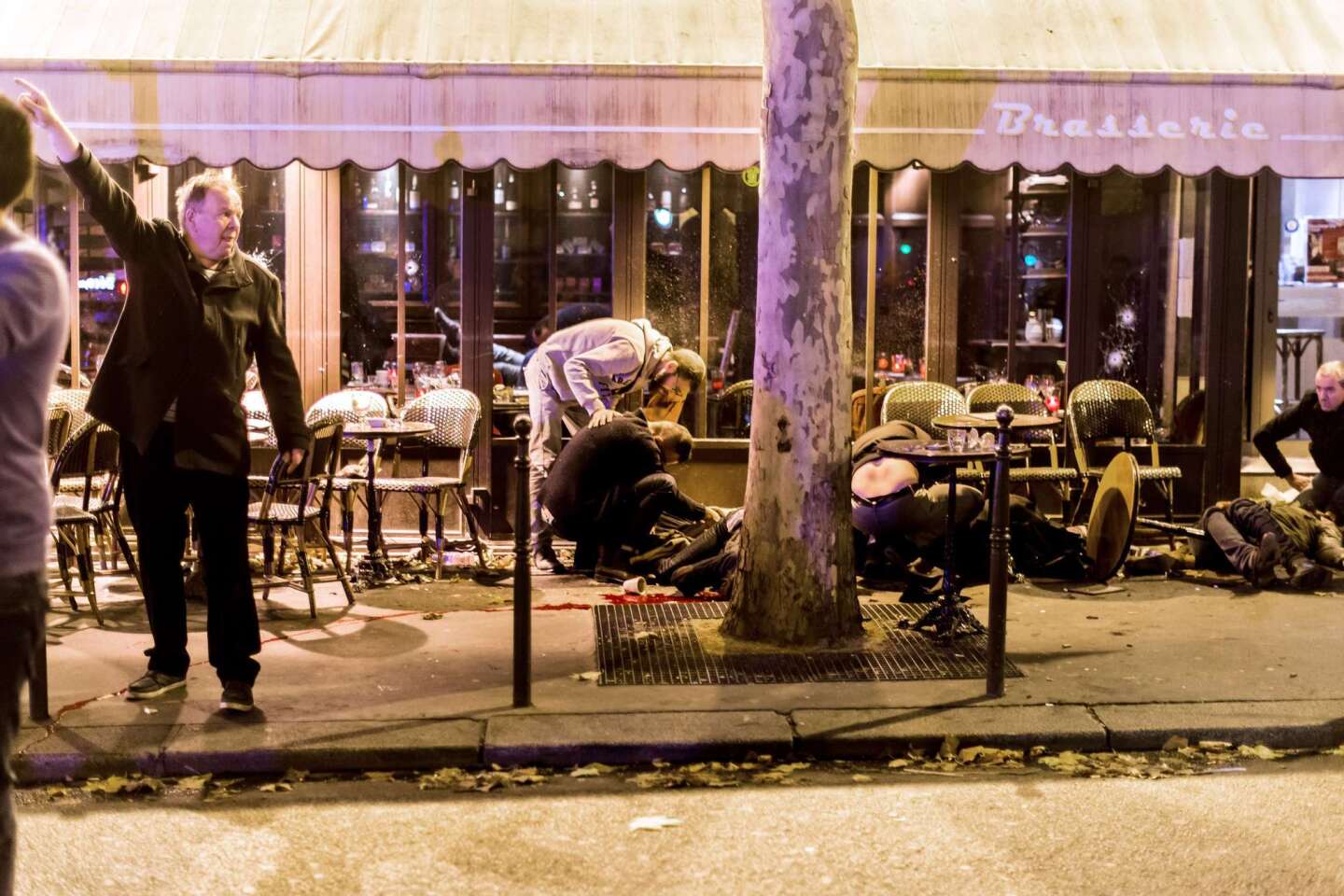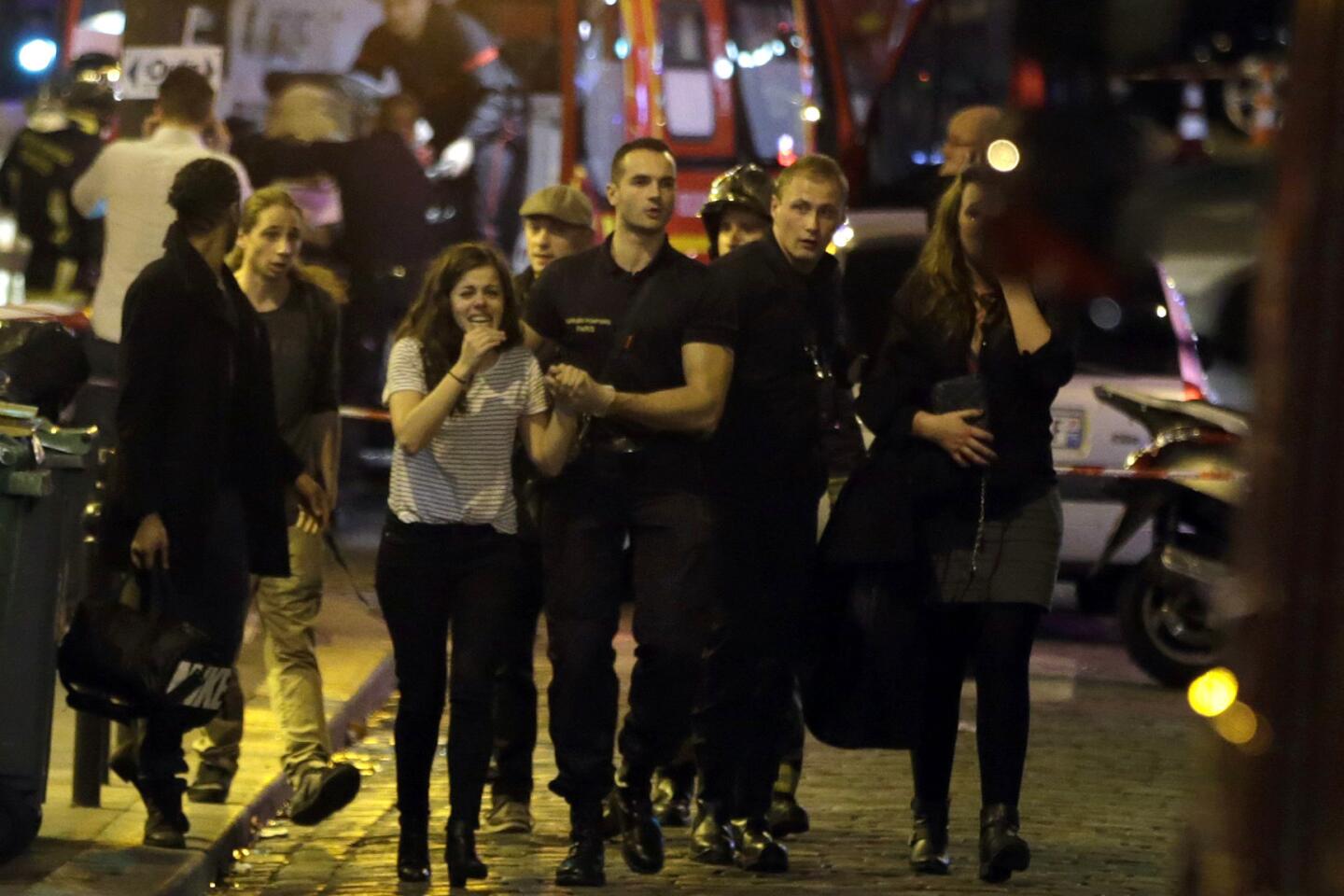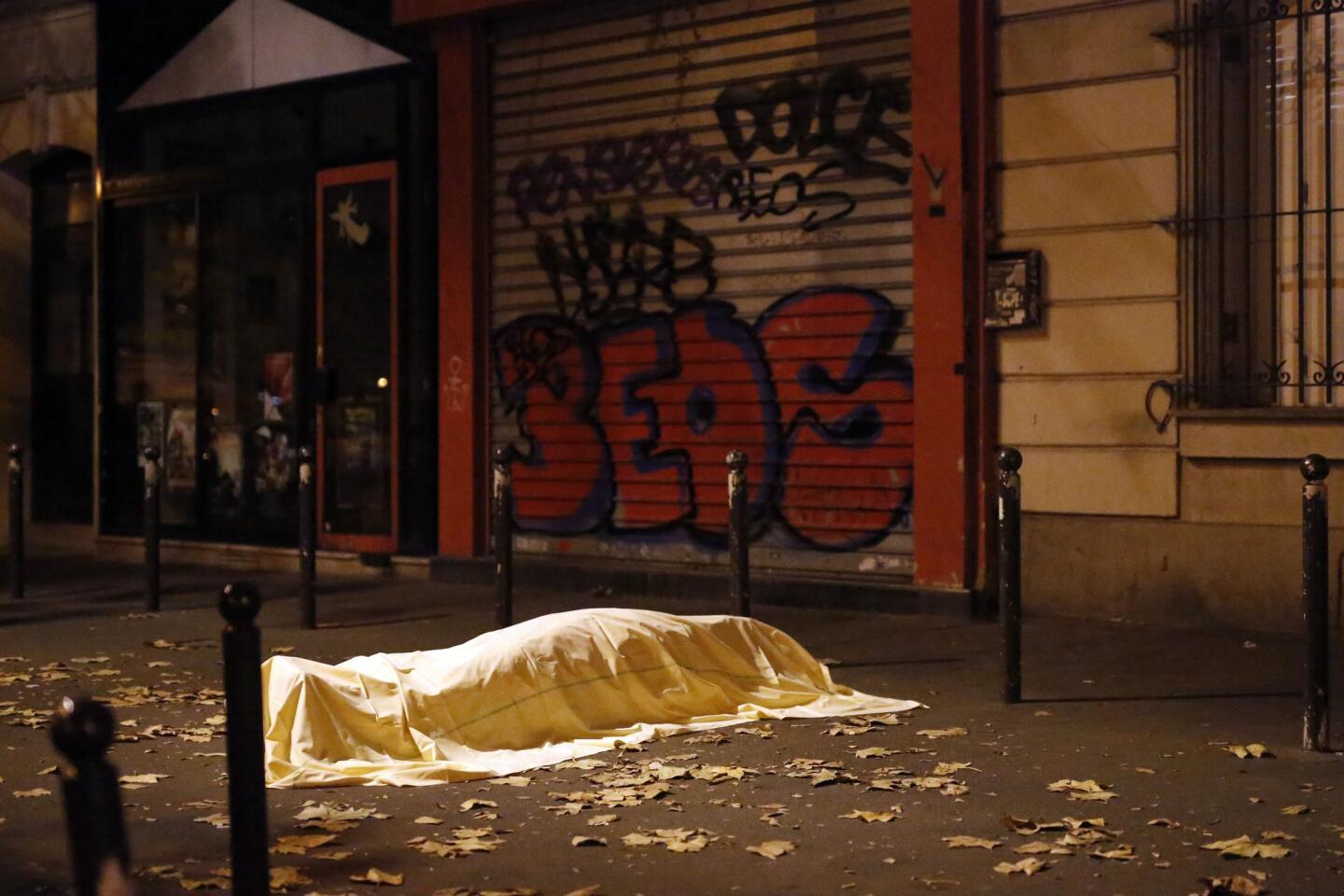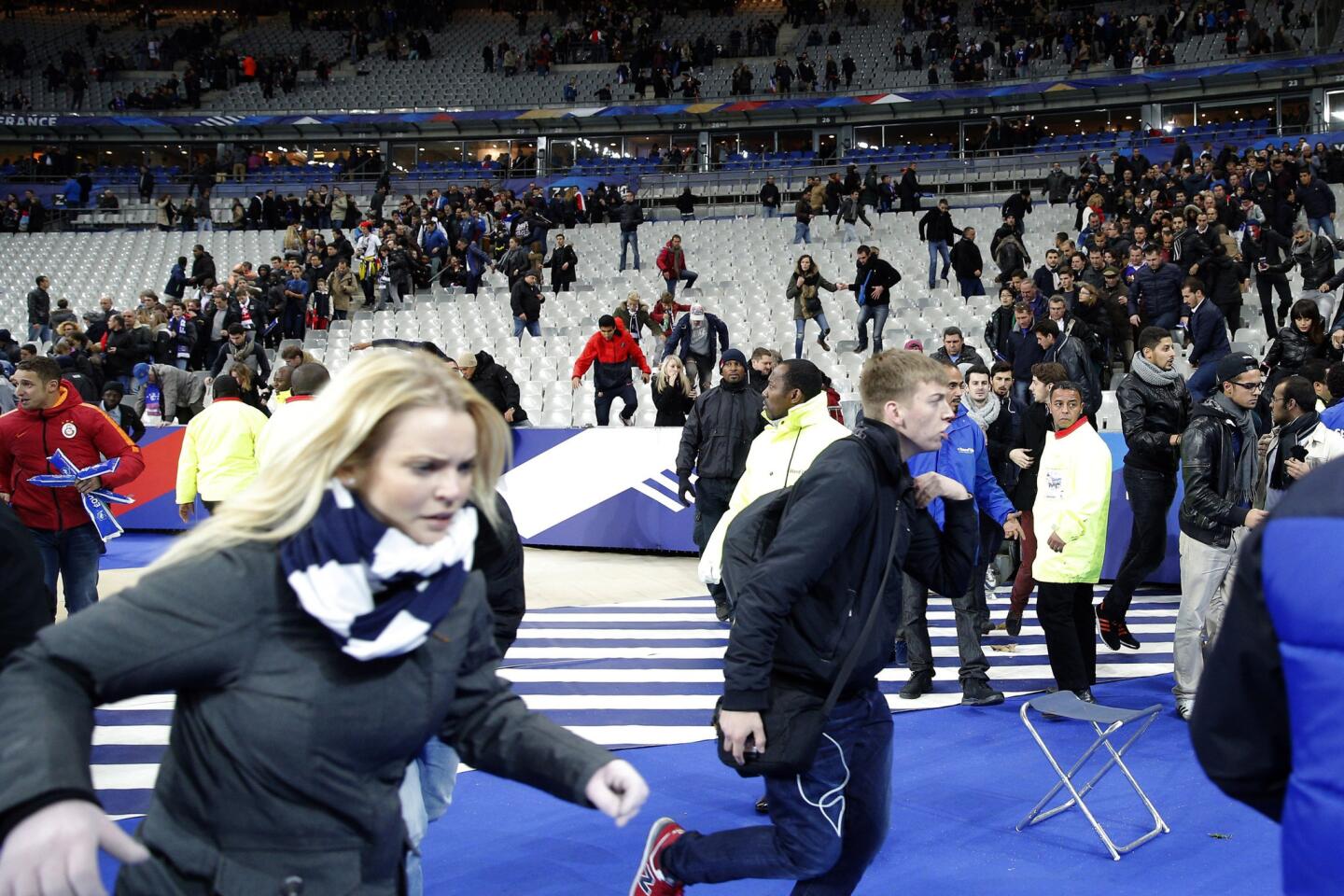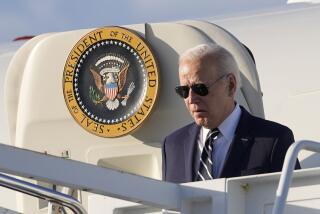Biden: Islamic State does not pose ‘an existential threat’
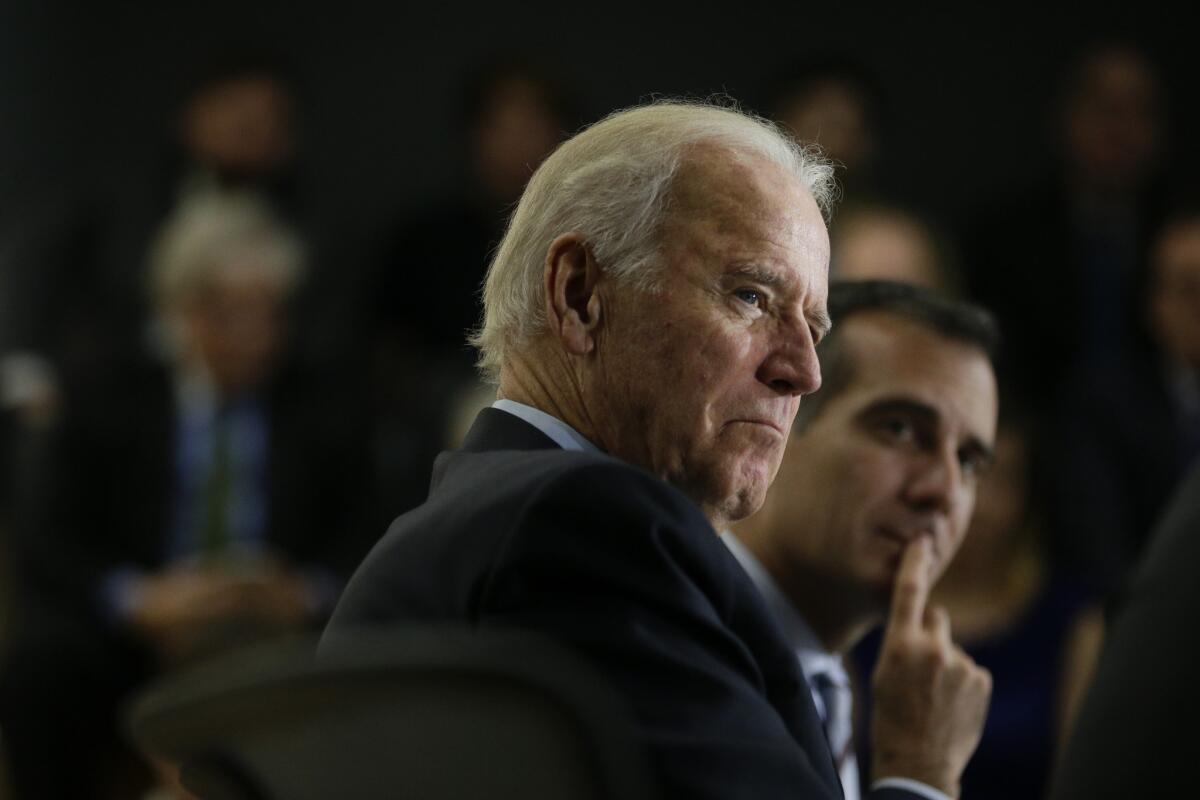
Vice President Joe Biden, joined by Los Angeles Mayor Eric Garcetti, spoke at a roundtable on clean-technology entrepreneurship in Los Angeles.
Vice President Biden warned on Monday of the perils of a domestic overreaction to the attacks that left 129 dead in Paris, saying the terrorist organization behind the assault does not pose “an existential threat” to the United States. In his first public remarks since the Friday attacks attributed to the Islamic State in Syria, Biden cautioned that “the moment we give in and change anything about the openness of our society is the moment they win.”
The vice president spoke at the beginning of a roundtable on clean-technology entrepreneurship in Los Angeles. Appearing alongside L.A. Mayor Eric Garcetti, Biden urged democratic countries to resist the impulse to crack down on immigration and the free flow of information in the ISIS attack’s aftermath. He said the group’s tactics are calculated to provoke Western nations to indiscriminately mistreat or attack Muslims, adding that such a strategy “cannot work if we don’t let it work.”
“ISIS will not prevail. It offers nothing but destruction. It offers nothing but twisted ideology that is not sustainable,” he said. “Terror is designed to inspire terror. And we lose, they win, the moment we give in to that terror.”
Biden added “there will be a tendency, both here and in Europe, to talk about closing down borders.” That tendency is already on dramatic display in the U.S., where some Republican officials say they will seek to ban the immigration of refugees from Syria’s civil war.
The vice president said acting on such reflexes would be a mistake, asserting that ISIS was incapable on its own of seriously menacing the U.S.
FULL COVERAGE: Attacks in Paris
“I say to the American people: There is no existential threat to the United States,” Biden said. “Nothing ISIS can do could bring down the government, could threaten the way we live.”
Biden’s appearance in L.A. came as the White House was enduring fresh rounds of criticism of its foreign policy in the wake of the Paris killings.
President Obama, who has struggled for much of this year to formulate a strategy to combat ISIS’ unexpected territorial expansion in Iraq and Syria, is again on the defensive over what critics say has been a slowness to recognize the danger posed by the group.
Such criticism was fueled anew by the president’s assertion that ISIS was “contained” in a television interview the day before the Paris assault. The comment has drawn rebukes even from some Democrats – including California Sen. Dianne Feinstein, who on Monday told Andrea Mitchell of MSNBC that ISIS is “not contained” and “is expanding.”
In remarks to reporters after Monday’s event, Biden defended the administration’s handling of the fight against ISIS.
“The truth is, there has been progress made against ISIS in Iraq and Syria,” he said. “They have 25% less geography they occupy now... It’s going to take a long time. There’s a lot of work to do.”
He acknowledged the Paris attacks would likely lead to changes in the U.S. approach to combating ISIS.
For example, Biden said he foresaw greater coordination with European and NATO allies going forward.
“It will change the strategy. It hasn’t changed the way we think about ISIS,” he said of the Paris assault. “What you will see now, I predict, is considerably more cooperation and intelligence-sharing with our European friends, who were for a while reluctant to do that. And I think you’ll see a more concentrated effort among our NATO allies and members of the E.U. to deal with ISIS in the Middle East.”
ALSO:
Presidential candidates criticize Obama’s Islamic State strategy, but theirs sound similar
Momentum builds among states to reject Syrian refugees after Paris attacks
Democratic debate becomes driven by foreign policy
More to Read
Start your day right
Sign up for Essential California for news, features and recommendations from the L.A. Times and beyond in your inbox six days a week.
You may occasionally receive promotional content from the Los Angeles Times.
